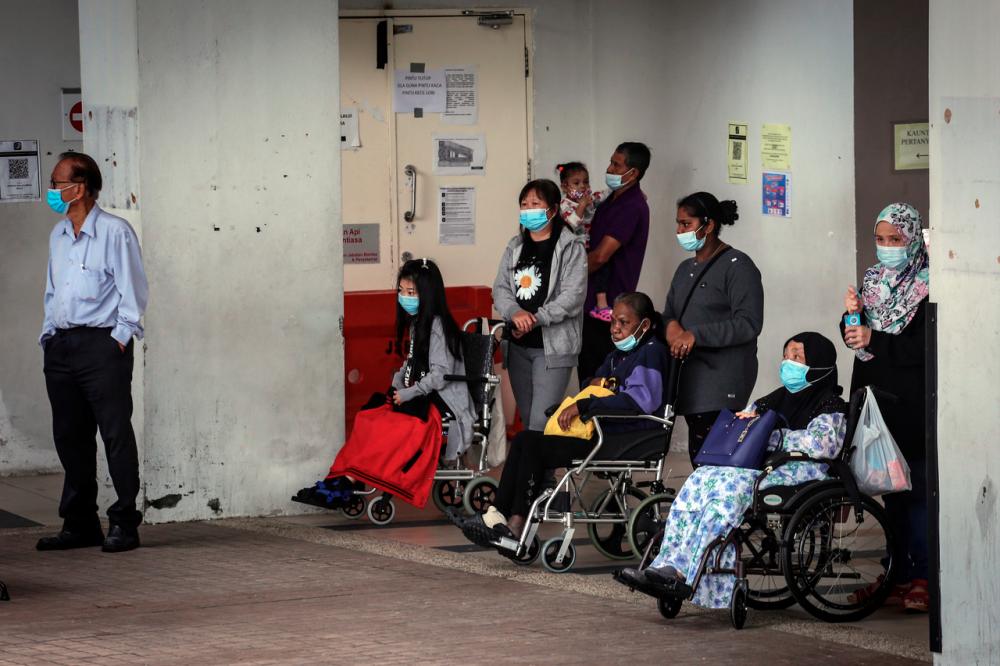PETALING JAYA: The Malaysian healthcare system has been stretched to the limit, yet at least half of the people remain susceptible to diseases that can be easily prevented.
There is a high incidence of diabetes, heart disease and hypertension among Malaysians, non-communicable diseases (NCD) that can be prevented with a lifestyle change.
This leaves the healthcare system overwhelmed with treating diseases, thereby taking its focus away from a more important aspect of healthcare – prevention.
According to former deputy health minister Dr Lee Boon Chye, two-thirds of the Health Ministry’s resources are used to treat illnesses, when they could have been better used to prevent people from falling sick in the first place.
That left only one-third of the RM29 billion allocated to the ministry in 2020 to underwrite the more important aspect of healthcare – prevention. The budget has been raised to almost RM32 billion for this year.
Lee attributes the imbalance to a lack of focus on promoting a healthy lifestyle. Instead, the money is being used to pay for the care of those who have already fallen ill.
He told theSun that the same ratio prevails in the allocation of human resources. Only a third of healthcare personnel in the government service are engaged in preventive medicine.
“If only we had paid more attention to preventive care, it would have reduced the burden on the health services. We would have tackled the issues before they become problems,” he said.
He said the ministry has to play a more proactive role in educating the people about the need to avoid bad habits such as smoking and over-eating.
One of the major causes of NCD in Malaysia is obesity. Malaysians rank above their Southeast Asian neighbours on the obesity chart.
Obesity is among the biggest problems in developed countries. Malaysia ranks among the few developing countries that face this problem.
Lee noted that Malaysia has changed from an agriculture-based to an industrial-based economy, and along with the shift, the diet changed and physical activities associated with manual labour gave way to a more sedentary lifestyle.
“Records show that at least 50% of Malaysians are obese, and they are at high risk of getting a myriad of diseases such as heart ailments, most cancers, diabetes, chronic kidney diseases, osteoarthritis, osteoporosis, Alzheimer’s disease, cataracts, among others.
Malaysian Medical Association president Datuk Dr M. Subramaniam said preventive medicine is an important component in healthcare as its approach can significantly reduce the incidence of illnesses and diseases in the population.
“It is part of the training in medical school and an important area in the medical curriculum,” he told theSun.
“GPs (private practitioners) form a major component in preventive medicine.”
Regular check-ups for health maintenance and follow-up appointments with patients are all part of preventive medicine,” he said.
“Most GPs are already promoting preventive medicine through encouraging regular check-ups, prescribing lifestyle and diet changes to improve the health of patients before there is a need for medication or other interventions,” he said.
“These regular health screenings can help detect early health warning signs.”
Government-run health clinics also play an important role in helping people change their lifestyle to protect themselves from NCDs.
“They have done an admirable job in helping people to quit smoking but there is still a long way to go,” Lee said.
The best part is that it is not difficult to live healthy. All it takes is to walk 10,000 steps a day as part of an exercise regime. As always, it’s the first step that is most difficult to take.














